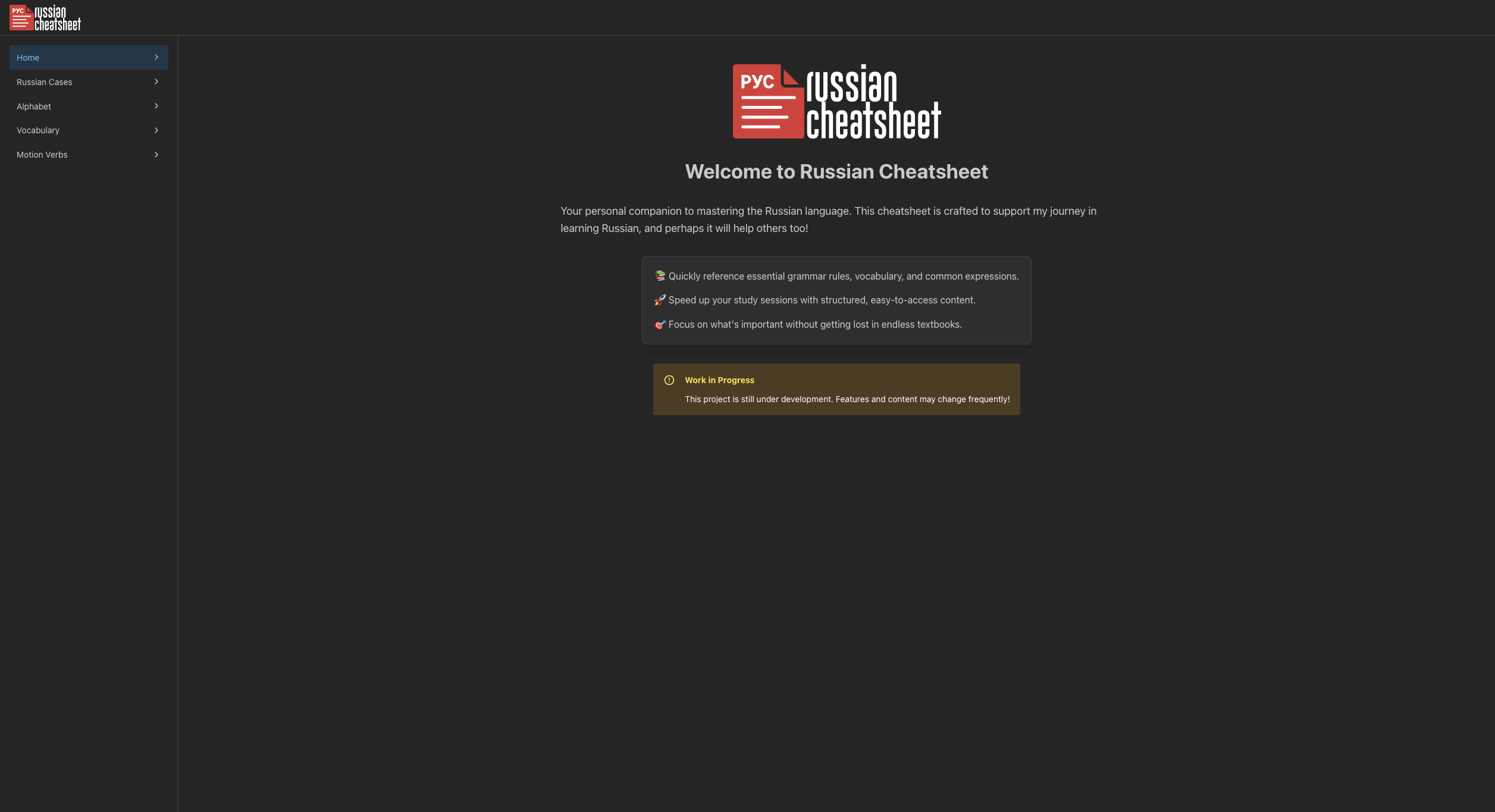Russian Cheatsheet
Your personal companion to mastering the Russian language.

Russian Cheatsheet is an advanced web application designed to assist learners of all levels in mastering the Russian language through a comprehensive, structured, and interactive digital reference tool. More than just a static collection of grammar rules or vocabulary lists, this platform aims to bridge the gap between traditional language learning resources and modern digital experiences by offering a searchable, multilingual, and pedagogically informed approach to understanding Russian.
At its core, the project addresses key linguistic pillars: the Cyrillic alphabet, vocabulary, grammatical cases, verb conjugations, and the notoriously complex verbs of motion. These components are not only explained but enriched with interactive examples, search filters, and detailed metadata. The vocabulary system supports queries in Russian, English, and Spanish, allowing users to search and filter terms with ease, making it especially useful for multilingual learners.
One of the standout features is the verb module, which presents aspectual pairs (perfective vs. imperfective) and highlights irregularities in conjugation across different tenses and persons. This helps learners internalize the logic behind verbal aspect, a cornerstone of Slavic grammar that often confuses non-native speakers. Complementing this, the cases section delves into how nouns, adjectives, and pronouns decline according to the six grammatical cases in Russian, complete with explanations, tables, and real examples to show how form follows function in actual usage.
The app also includes a dedicated section on motion verbs, one of the most nuanced and vital topics in Russian. Here, learners can explore directional prefixes, determine when to use unidirectional vs. multidirectional verbs, and understand their usage in context. These explanations are crafted to reflect the way native speakers internalize motion-related constructs.
On the backend, the platform is powered by Java and Quarkus, providing a lightweight yet scalable REST API for all operations. The ReactJS-based frontend delivers a responsive and performant user interface, ideal for both desktop and mobile usage. PostgreSQL serves as the persistent data layer, efficiently storing structured linguistic information and supporting full-text and multilingual queries.
To support collaborative data curation, the app features a fully-fledged admin panel protected by Keycloak-based authentication and RBAC (Role-Based Access Control). Authenticated users with the appropriate permissions can add, edit, or remove entries and adjust grammatical metadata—ensuring high data quality and ongoing improvement of the cheatsheet content. This admin workflow also enables controlled content moderation and collaborative grammar expansion as the application evolves.
The entire system is containerized with Docker, making it easy to deploy, maintain, and scale across different environments. Whether hosted for public access or run locally for private learning, the deployment is secure, modular, and infrastructure agnostic.
From a pedagogical perspective, Russian Cheatsheet can be used as:
- A companion tool for language courses or self-study.
- A reference database for translators, linguists, and Russian teachers.
- A platform for building personalized vocabulary decks and grammar insights.
In summary, Russian Cheatsheet is not just another dictionary or flashcard tool—it’s a living, dynamic ecosystem for serious learners of Russian. It combines rigorous linguistic structure with modern software engineering, delivering a seamless experience that respects the complexity of the language while making it accessible and navigable.